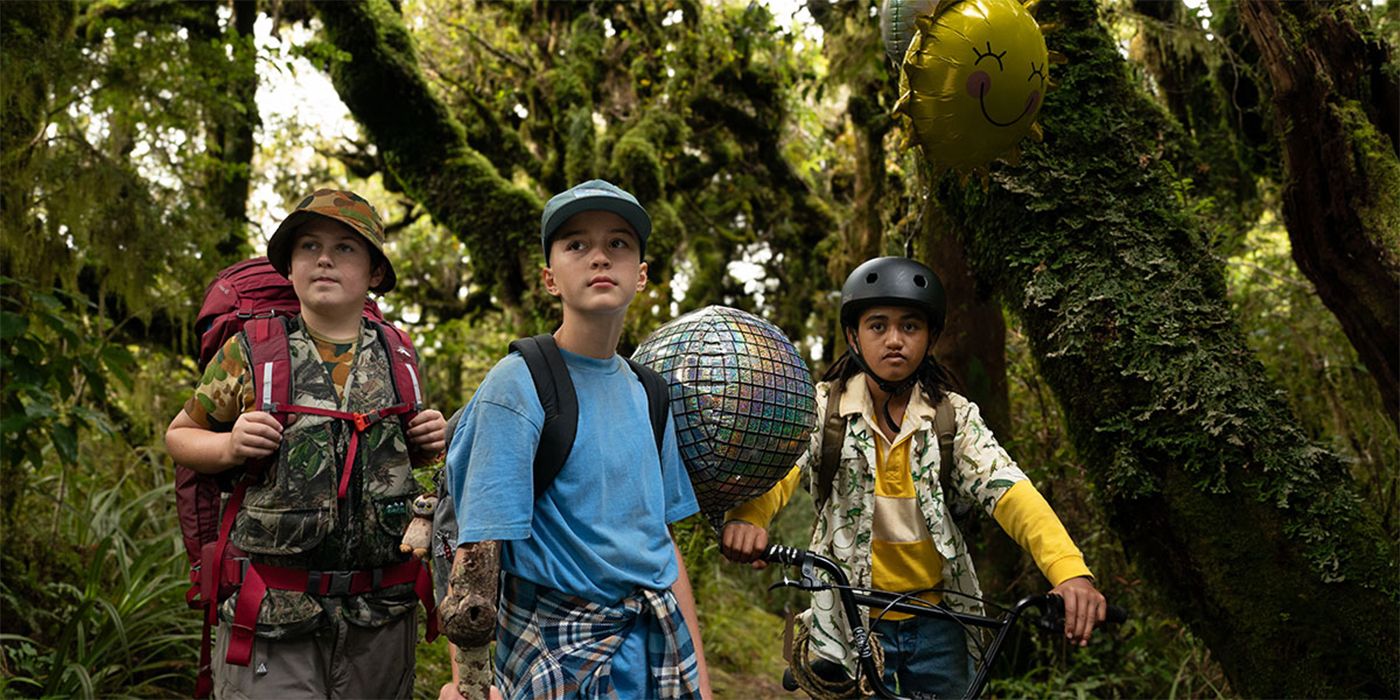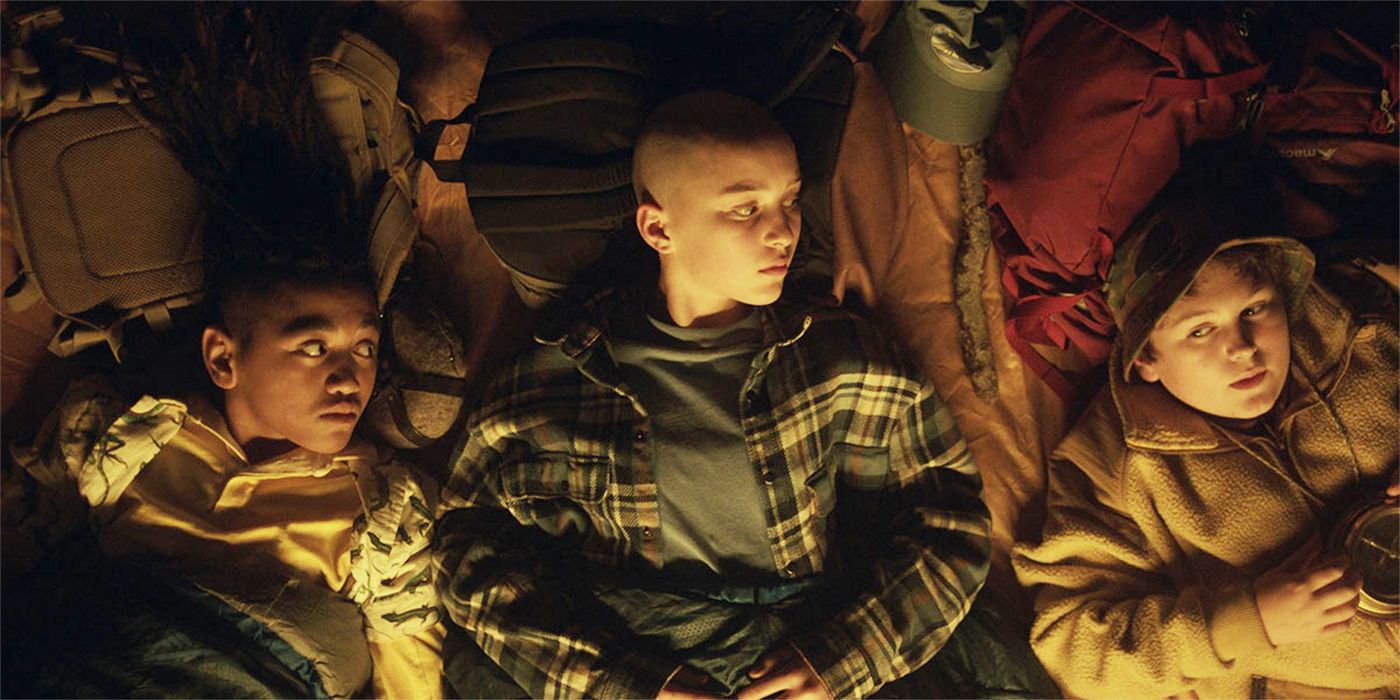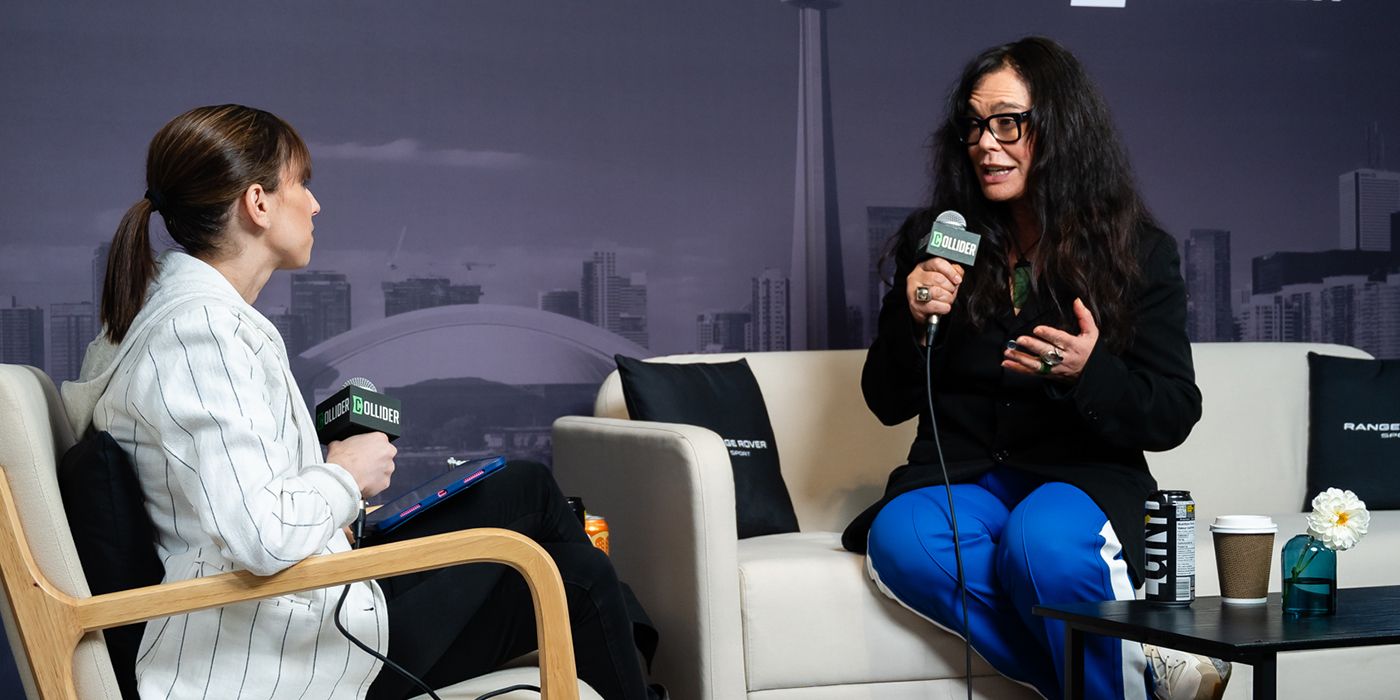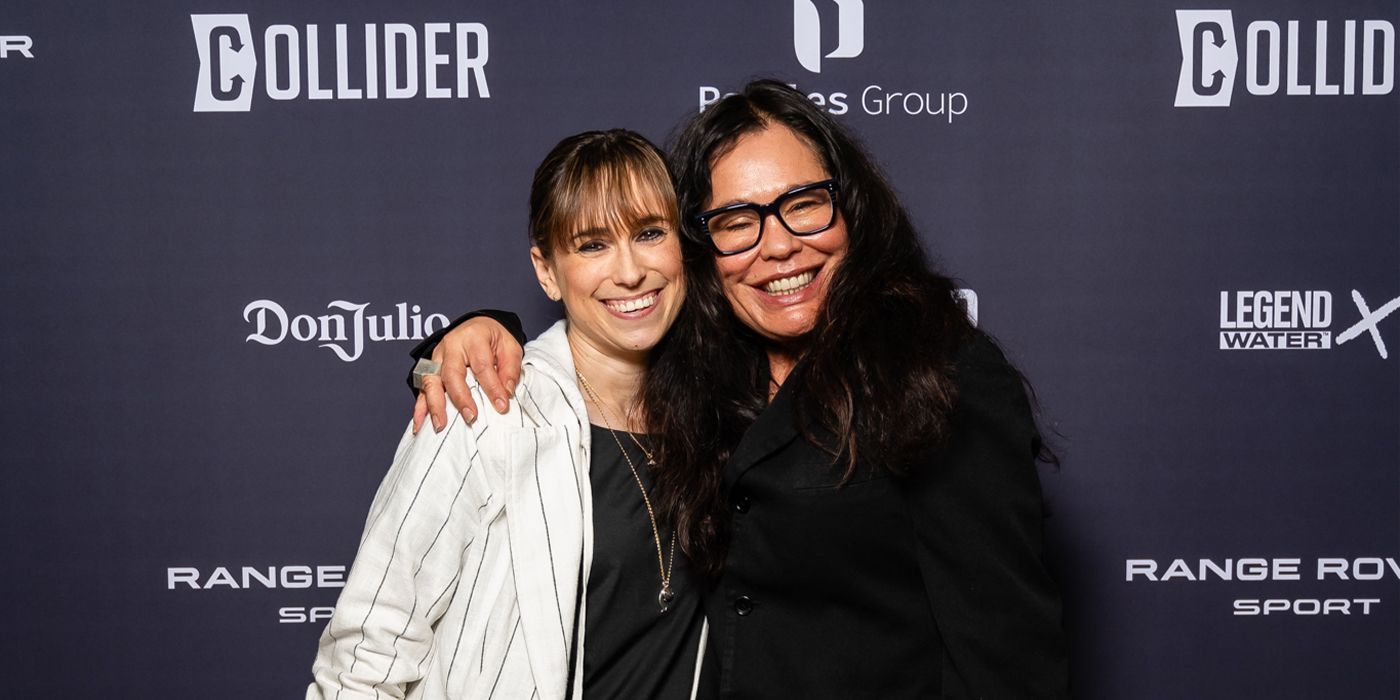The Big Picture
- Collider’s Perri Nemiroff sits down with writer-director Rachel House at TIFF 2024 for
The Mountain
, her feature directorial debut. -
The Mountain
is an adventure film that explores friendship and Māori culture as Sam, a young girl with cancer, sets out to make it to the top of Taranaki. - In this interview, House discusses casting her three leads, celebrating Māori culture, and how her previous experience supported her directorial debut.
Rachel House is a staple of New Zealand cinema. After debuting in the internationally acclaimed Whale Rider, House appeared in works by Oscar-winners Jane Campion and (almost every single flick by) Taika Waititi. Her acting career continues to blossom with memorable voice roles in Disney’s Moana and Pixar’s Soul, as well as with her appearances in mega-blockbuster films like Godzilla x Kong: The New Empire. Now, House is celebrating the North American premiere of her debut feature as a director, The Mountain, at this year’s Toronto International Film Festival.
Co-written by House and Tom Furniss, The Mountain tells the story of Sam played by Elizabeth Atkinson, a young girl raised outside of her Māori culture. As Sam bravely battles cancer, she makes it her mission to connect with her mountain, Taranaki Maunga, which she believes is the key to her cure, as well as a way to connect with her true identity. On her adventure, Sam befriends Mallory (Reuben Francis) and runaway Bronco (Terence Daniel) as they make their way together on a spiritual adventure off the beaten path.
In 2020, House was a guest on Collider Ladies Night with Perri Nemiroff, where she shared the plot for The Mountain and news that she was on the search for her leads. Almost four years later, the co-writer and director stopped by Collider’s interview studio at the Cinema Center at MARBL to celebrate her directorial debut and share her enthusiasm for Atkinson, Francis, and Daniel’s talent and the authenticity they brought to their roles. House also talks about her previous experience with directing theater, working as an acting coach, and how that enabled her to empower her cast on set. She also highlights the importance of spotlighting Māori culture in her work. You can watch the full interview from TIFF in the video above or read the conversation in transcript form below.
‘The Mountain’ Explores The Spirit of Friendship and a Deeper Understanding of Nature
The script was a “brilliant opportunity” to share the First Nation peoples’ culture.
PERRI NEMIROFF: The joy it brings me that we were talking about you wanting to make the movie — I don’t even think you had the green light yet — on Ladies Night four or five years ago, and now here you are with an excellent finished film. It’s just something else!
RACHEL HOUSE: I know. It’s been a journey, and I feel like people have tried to push me into the role of a director of a feature film, and I just wasn’t quite ready. Also, this was an opportunity to get involved in the script, as well, which I think I’m quite big on.
To catch our audience up, would you mind giving a brief synopsis?
HOUSE: The Mountain is about three young children who go to climb a mountain to help one of their friends, Sam, to cure herself from a terrible affliction — she has cancer. And on the way, they discover the spirit of friendship, and they also really get a deeper understanding of nature itself.
Many questions about this being your first feature as a director. Why particularly this material? What was it about it that made you say to yourself, “This is how I want to introduce myself as a director to this industry?”
HOUSE: Initially, the script was about three little boys. They wanted to conquer a mountain, and the mountain didn’t have a name, and so, as an Indigenous woman reading that script, I didn’t quite know where we were. I didn’t know that it was set in our country, and I thought, “What a brilliant opportunity.” Thank you so much, Tom Furniss, who did a brilliant script and worked very, very hard for many years on his script, The Mountain. It was a wonderful opportunity to try and explain and share with the world how First Nations people see their mountains.
The other thing was something I wanted to follow up on that I was reading about; this script was brought to you to direct. Were you surprised when that happened, or did people know that you were seeking projects to direct?
HOUSE: I was fortunate enough that I had people bringing me projects, really for the last decade, but none of the scripts really sang to me or resonated with me personally. This particular script did because of those reasons, that I thought, “What a brilliant opportunity to share with the world how we see our mountains and how special they are to us.”
Rachel House Knows a Directing Secret for A+ Performances
So you’ve had the itch to direct film for all that time and only now first pushed go?
HOUSE: Well, I directed theater for a really long time, and so I knew I really loved directing. I love working with actors, love working out story, but yeah, I knew that if I wanted to make a feature, it had to be something really special, and maybe it was something that I wrote myself. That never happened — spent too long procrastinating. And so when this came along, I thought, “Yeah, this is it. This is the way.”
Between theater directing and all the other experience you’ve had in this industry, what is a skill you gained that you found coming in handy when directing your first feature film, but then also, can you tell me about a learning curve, something about directing that you didn’t expect and you had to adjust to?
HOUSE: So I think it was really all the acting coaching that I’ve done working with young, amazing kids that really came in handy for this film. I think that’s why I felt confident, I suppose, because I knew how to work with kids, and I really enjoy it. So, that was something that I felt really good about. I think what was so interesting in terms of directing adult actors is that you really have to just let them go for it and just empower them to bring what they want to bring and only step in if they need help, as opposed to micromanaging a performance in any way. I feel like there are directors out there who kind of want to start changing you before you’ve even stepped on set. I noticed that when I work with directors who just empower you to bring what you can bring to the role yourself, that’s often when the best work happens. Working on this feature film was definitely a way for me to experiment with that with the adult actors. And they all do. They bought their own game on day one.
Edward Burns was just in here talking about his new movie, and he explained it the same way. He mentioned how Steven Spielberg set the bar for him in terms of letting actors feel it out for themselves before giving notes, just so you don’t box someone in or put any unnecessary pressure on someone before they’ve even had a chance to explore the material.
HOUSE: Absolutely. That’s definitely when I’ve thrived as an actor, and when I’ve completely crumbled as an actor is when I’ve been micromanaged.
‘The Mountain’ Debuts an Exceptional Young Cast
I did want to go back to your young cast. The three of them are exceptional. Can you tell me something about each of them that signaled to you, they weren’t just good fits for their particular roles, but they also had what it takes to headline a feature film as a young actor?
HOUSE: I should start with Terence Daniel because his audition tape was exceptional. He put it together himself; I thought it must have been done by his mom. But in there was sort of a montage of all of his skills, so it had him riding his bike, it had him playing rugby, kind of mid-flying across the field. He is in doing Kapa Haka, doing the Haka. He came in, and he basically was Bronco as soon as he stepped in the door. He was just very at ease in himself as a human being, but also in our culture, in Māori culture, which is definitely something that Bronco needs to have. He also had a very clear understanding of grief, and also the importance of nature.
He is phenomenal in that role. Every single time you open me up to a new layer of that character, all I kept thinking was, “I need to spend more and more time with him.”
HOUSE: Right?
I appreciated that.
HOUSE: And that’s Terence. That’s him. What you’re seeing is actually Terence.
How about your other two stars now?
HOUSE: Beautiful Reuben [Francis]. He went through a kind of ordeal just before he came in to audition where he was in the UK at school, he had friends, and then when COVID struck, him and his family moved back to New Zealand. They were from New Zealand. And so he came into the lockdown into his new life. He hadn’t made any friends, and so he was feeling very much like an outsider. So when he came to audition, that was kind of where he was at in his life. He just started school, and he was just struggling a little bit to get into the swing of a new school and new friends. So, I sort of feel like he brought that beautiful vulnerability to his character straight away, as well.
And then, of course, our beautiful Elizabeth [Atkinson]. She was the hardest to find. We went through a lot of young actors to find her, and she came in with this absolute fierceness and determination, which I thought was essential that Sam had, as well.
It leaps off the screen in her work. Correct me if I’m wrong, but I believe this makrs feature debuts for …
HOUSE: All three of them.
How ‘The Mountain’ Guides Audiences Through Māori Culture
We were talking about this a little before and I said I wanted to bring it up. It’s a really big question that might not have a simple answer, but it’s something I really appreciated about your film. What is the key to respecting such a specific experience and cultural elements, but while making it feel like it’s welcoming newcomers in? I thought you struck a beautiful balance with that.
HOUSE: When I reworked the script, I had to rewrite Bronco in particular because I thought Bronco was our key for everybody who didn’t know a lot about Māori culture. It was imperative that he be our guide through our culture, so that was a complete rewrite. I think he does it really well, that character. I think that character kind of brings us in really well. Both those characters, the other two, struggle with that kind of knowledge themselves, so it really meant that we had to make Bronco our access point as much as possible.
But for us behind the scenes, we got in contact with these eight tribes that live around the mountain. I’m connected to two of them, which is really great. I wouldn’t have made that mountain Taranaki unless I was personally connected to them. Me and Desray Armstrong and Carthew Neal did a lot of work with the Iwi before we even started filming. It was a long process, but one that couldn’t be rushed.
Director Rachel House Started Each Shooting Day With A Prayer
“To uplift and uphold and respect each other in all of our jobs.”
I have to wrap with you and I wanted to make sure to end on this particular question. For about the last year, it’s the final question of Collider Ladies Night, so I didn’t get to pose it to you in 2020. In this industry, we give each other awards and I think that’s super cool. But, I find that few filmmakers say “good job” to themselves nearly enough, and making your feature directorial debut is one heck of an accomplishment. I want you to tell me something specific you did making The Mountain that you know you’ll be able to look back on and say, “I am so proud of what I did in there.”
HOUSE: I think it was just the way every day we had a prayer. We started the day with a prayer, and we really infused our process with what we call Manaakitanga, which is to uplift and uphold and respect each other in all of our jobs. I think we had a beautiful family, and I think it was all of us who created that, but I’m glad that I was a leader in that process.
Your film made me so happy!
HOUSE: I’m so happy! I will never get sick of people saying that they like my film.
I assume the itch to direct feature films is still there, and perhaps growing?
HOUSE: Oh, yeah! Although maybe something in a different genre. A thriller. Horror.
Special thanks to this year’s partners of the Cinema Center x Collider Studio at TIFF 2024 including presenting Sponsor Range Rover Sport as well as supporting sponsors Peoples Group financial services, poppi soda, Don Julio Tequila, Legend Water and our venue host partner Marbl Toronto. And also Roxstar Entertainment, our event producing partner and Photagonist Canada for the photo and video services.







![‘Slow Horses’ Season 4 Sneak Peek Puts Jackson Lamb in the Wake of Disaster [Exclusive] ‘Slow Horses’ Season 4 Sneak Peek Puts Jackson Lamb in the Wake of Disaster [Exclusive]](https://i3.wp.com/static1.colliderimages.com/wordpress/wp-content/uploads/2024/09/slow-horses-gary-oldman.jpg?w=1200&resize=1200,0&ssl=1)
